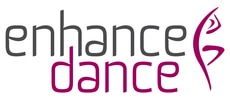About the Research
|
The purpose of this doctoral research project is to investigate pedagogical approaches that could lead to scientifically and somatically informed innovations in contemporary dance technique teaching and training, and meaningful embodied learning experiences for young adult dancers. The research, at three post-secondary university dance programs in Canada, involves three studies that address the following objectives:
|
Dance science: a scientific approach to dance that aims to enhance the physiological and psychological functioning of dancers. Healthy dance practice: protecting dancer health, optimizing dance performance, and prolonging dance participation by applying dance science concepts that support optimal physical and psychological functioning in dance contexts. Somatics: practices and processes that increase awareness of one's lived experiences to enhance agency and overall wellness. Social Somatics: understanding the individual living body-mind as connected to the sociocultural context in which it is situated. Embodiment: Holistically integrating the body, soma, psyche and socio-material world. |
Methods
|
Qualitative inquiry guides the pursuit of the research objectives through two phases. The first phase involves two studies that have field work designs and use interpretive description methodology. The first study involves experienced dance teachers who instruct contemporary dance technique in undergraduate dance degree programs. The second study involves pre-professional dancers (18-24 years) in these programs. Data is collected through class observations, questionnaires, semi-structured individual interviews with the teachers and focus group interviews with dancers. Data is analyzed using the interpretive description method. The second phase and third study is embedded within a contemporary dance technique course for dance majors. It has an action research design and uses critical creativity methodology. The instructor and pre-professional dancers from the course (18-24 years) are involved in a collaborative and participatory process through five cycles of data collection and concurrent analysis. Data collection methods include class observations, group discussions, individual and group creative projects, questionnaires, and reflective journals. Data is analyzed using an approach informed by reflexive thematic analysis.
|
Interpretive description (Thorne): a constructivist methodology that uses naturalistic data collection techniques and allows for the integration of theoretical and disciplinary knowledge for the purpose of developing applied findings. Critical creativity (Titchen & McCormack): an arts-informed transformative action research methodology that views transformation as a means and end to human flourishing through through adaptive cycles of planning, acting, observing/analyzing and creative reflecting. |
Support and Acknowledgements
This doctoral research is supported by Social Science and Humanities Research Council (SSHRC), the University of Calgary Kinesiology Dean's Doctoral Scholarship (KDDS), and an esteemed committee that includes Dr. Sarah Kenny, Dr. Meghan McDonough, Dr. Melanie Kloetzel and Dr. Cari Din.



